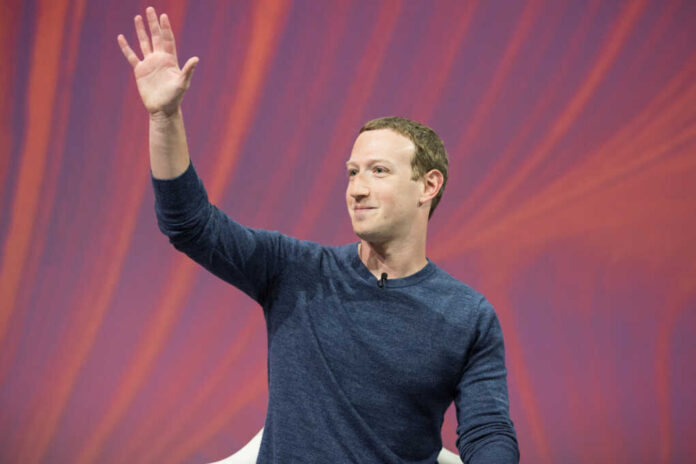
Mark Zuckerberg drops $23 million in cash on a Washington D.C. mansion just a 15-minute drive from the White House, signaling his renewed focus on government relations while simultaneously facing devastating financial losses from Trump’s recent tariffs.
At a Glance
- Meta CEO Mark Zuckerberg purchased a $23 million mansion in D.C.’s elite Woodland Normanstone neighborhood, closing the all-cash deal just one day after listing
- The secretive purchase stands as the third most expensive residential sale in D.C. history, with real estate agents signing non-disclosure agreements
- The strategic acquisition comes as Zuckerberg lost $13.9 billion in a single day due to Trump’s new tariffs, the largest loss among the world’s wealthiest individuals
- The property’s proximity to the White House suggests Zuckerberg is positioning himself to influence tech policy and potentially develop relationships with the Trump administration
- Meta currently faces significant regulatory challenges, including an antitrust trial with the FTC considering a forced breakup of WhatsApp and Instagram
Strategic Real Estate Move Amid Political and Economic Turmoil
Mark Zuckerberg and his wife Priscilla Chan have expanded their already impressive real estate portfolio with a $23 million mansion in Washington D.C.’s prestigious Woodland Normanstone neighborhood. The swift transaction closed in cash just one day after the March 3rd listing, indicating Zuckerberg’s urgent interest in establishing a presence in the nation’s capital. The five-bedroom, 7.5-bathroom property sits on nearly an acre of land and boasts luxury amenities including a basketball court, pool house, two kitchens, and three fireplaces, all designed by renowned architect Robert M. Gurney.
The secrecy surrounding the purchase was notable, with real estate agents required to sign non-disclosure agreements and property images subsequently removed from Google Maps and Zillow. This level of privacy is consistent with Zuckerberg’s approach to his other properties, which include homes in Palo Alto, Lake Tahoe, and Hawaii. Industry observers point to the strategic location of the mansion, situated less than 15 minutes from the White House and near Embassy Row, as evidence of Zuckerberg’s growing focus on governmental relations during a critical period for Meta.
Cultivating Government Influence
The timing of Zuckerberg’s D.C. real estate acquisition has raised eyebrows across political and tech sectors. Meta is currently battling significant regulatory challenges, including an antitrust trial with the Federal Trade Commission that could potentially force a breakup of Meta’s properties including WhatsApp and Instagram. This purchase appears to align with a broader trend of tech executives buying properties in Washington during President Trump’s second term, suggesting a calculated effort to establish closer proximity to political decision-makers.
Political observers note that Zuckerberg’s move into the capital coincides with speculation about his potential role as a technology confidant to Trump. The purchase represents a significant shift from Zuckerberg’s previous approach to Washington relations, which relied more on lobbying efforts than personal presence. By establishing a permanent residence in D.C., the Meta CEO positions himself for direct involvement in policy discussions affecting the tech industry’s future, potentially seeking to influence regulatory decisions that could impact his company’s structure and operations.
Financial Consequences of Trump’s Tariffs
In a striking coincidence, news of Zuckerberg’s mansion purchase emerged alongside reports of massive financial losses suffered by the world’s wealthiest individuals, including Zuckerberg himself. According to the Bloomberg Billionaires Index, Zuckerberg lost approximately $13.9 billion in a single day following President Trump’s announcement of sweeping new tariffs. This made him the biggest financial casualty among global billionaires, who collectively lost $161 billion in what marked the largest one-day wealth decline since the peak of the COVID-19 pandemic.
The financial impact on Zuckerberg and other tech leaders underscores the significant influence government policy can have on tech industry fortunes. Other billionaires suffering substantial losses included Jeff Bezos ($12.3 billion), Elon Musk ($8.5 billion), luxury mogul Bernard Arnault ($4.8 billion), and Warren Buffett ($2 billion). These staggering one-day losses highlight the volatility that can result from major policy shifts, potentially explaining why tech executives increasingly see value in maintaining closer physical proximity to Washington’s centers of power, regardless of the real estate costs involved.
A New Era of Tech-Government Relations
Real estate experts and political analysts agree that Zuckerberg’s purchase represents more than just another luxury acquisition. The value of direct access to governmental decision-makers far outweighs the property’s $23 million price tag, especially for a company facing Meta’s regulatory challenges. The purchase signals a new approach to government relations that prioritizes personal presence and relationship-building over traditional lobbying, potentially setting a precedent for how tech leaders engage with Washington in the coming years.
For ordinary Americans watching the intersection of tech wealth and political power, Zuckerberg’s mansion purchase represents yet another example of how the ultra-wealthy can leverage their resources to gain access and influence. While the average citizen struggles with inflation and economic uncertainty, billionaire tech leaders can simply purchase multi-million dollar properties to position themselves closer to the seats of power. This reality highlights the growing concern about the outsized influence of tech giants on American democracy and the increasingly blurred lines between Silicon Valley and Washington.
Sources:
https://finance.yahoo.com/news/mark-zuckerberg-secret-cash-buyer-010013534.html
https://nypost.com/2025/04/04/real-estate/mark-zuckerberg-outed-as-the-buyer-of-a-23m-dc-mansion/






















